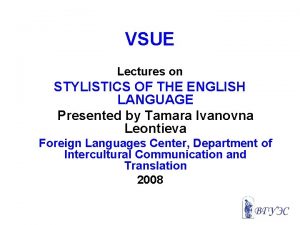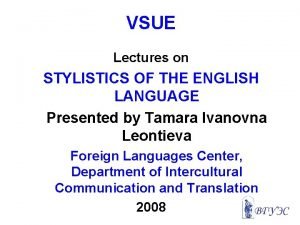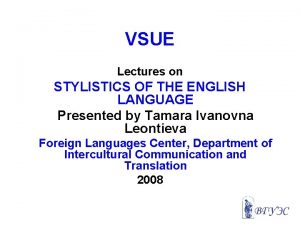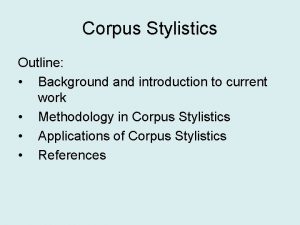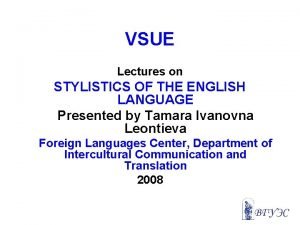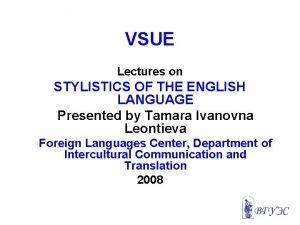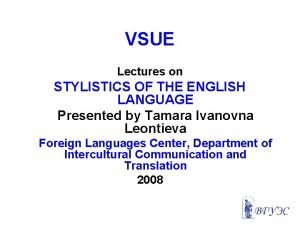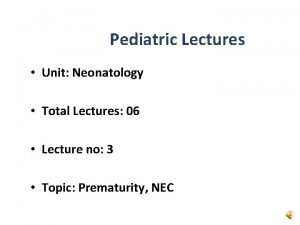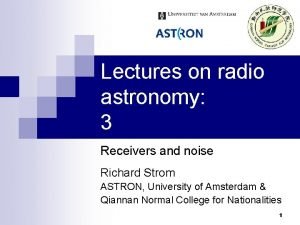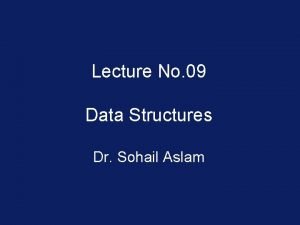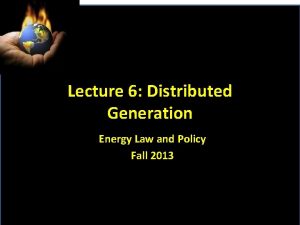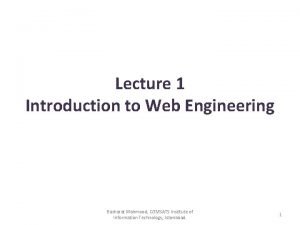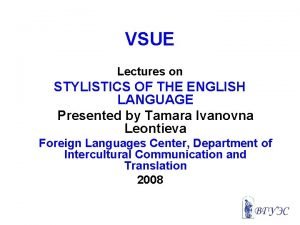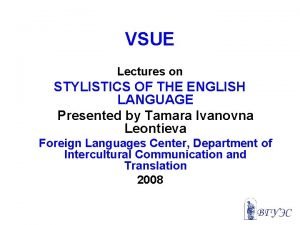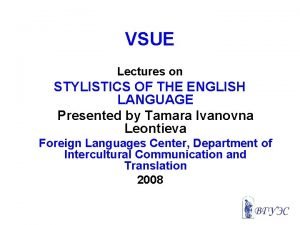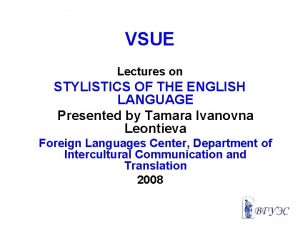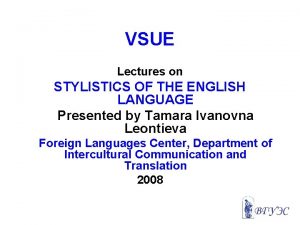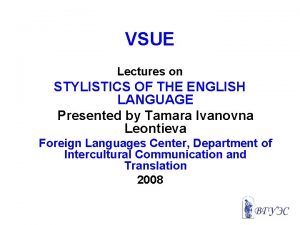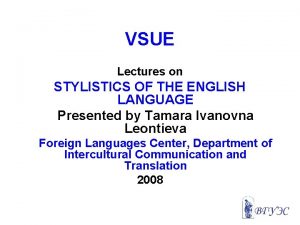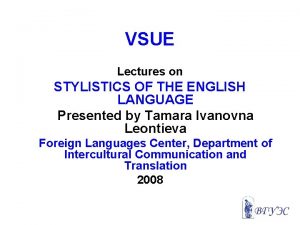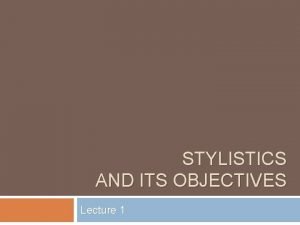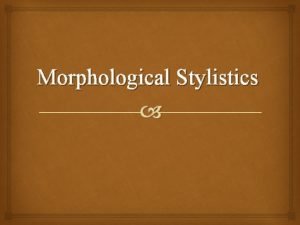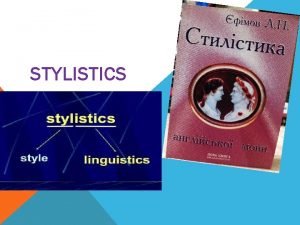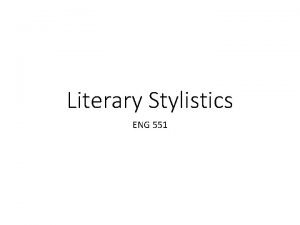VSUE Lectures on STYLISTICS OF THE ENGLISH LANGUAGE



















- Slides: 19

VSUE Lectures on STYLISTICS OF THE ENGLISH LANGUAGE Presented by Tamara Ivanovna Leontieva Foreign Languages Center, Department of Intercultural Communication and Translation 2008

What is STYLE? Style in general and style in linguistics

STYLE, n 1. A particular kind, sort or type, as with reference to form, appearance, or character: the baroque style; the style of the house. 2. A particular , distinctive, or characteristic mode of action or manner of acting: They do these things in a grand style. 3. A mode of living as with respect to expense or display, etc.

STYLE in linguistics The mode of expressing thought in writing or speaking by selecting and arranging words, to create clearness, effectiveness, euphony, or the like, that is characteristic of a group, period, personality, etc. : to write in the style of Faulkner; a familiar style; a pompous, pedantic style (Webster’s Encyclopedic Unabridged Dictionary of the English l-ge)


STYLE in literature Style in literature is an expression of the writer’s or speaker’s personality and his way of looking at life. This explains the famous and much-quoted definition of style given by Buffon, a French writer and naturalist of the XVIII century. He wrote: ‘Le style, c’est l’homme měme’. (Style, it is the man himself. )

Robert Frost: «All the fun’s in how you say a thing»

Suppose that a certain John Smith has just died. His son, writing a few days later to one of his friends, might say: (1) My beloved father has joined the heavenly choir OR (2) My dear father has passed away OR (3) My father has died OR (4) My old man has kicked the bucket.

The subject of stylistics 1) to study the principles of choosing different linguostylistic means for making an impact on the reader or listener; 2) to investigate linguostylistic means: lexical, grammatical, phonetic, syntactical which create a special emotional effect; (to be continued)

The subject of stylistics - 2 3) to survey a system of special stylistic devices (SD); 4) to analyze different functional styles of the literary language; 5) to describe the individual manner of an author in making use of the language.

Mind the difference between language and speech!

What is language? Language is literally the material of the literary artist. Every literary work is a selection from a given language, just as a work of sculpture is made from a block of marble with some pieces chipped off. (After A. Warner)

What is speech? Speech deals with real texts either oral or written. The material of the language (vocabulary, phraseology, syntax) is used in texts to render a certain content or to pass different “purports”. (After O. Akhmanova, R. Idzelis)

LANGUAGE vs SPEECH • People as members of speech community • Interaction with members of the same community or other communities • The use of language means for passing on different “purports”, including ways of affecting the reader or listener • Language as the source of our speech activity.

Style of language 1. Vocabulary, phraseology, syntax. 2. Expressive, emotional and evaluative properties of linguistic means (denotative and connotative meanings of linguistic units).

Style of speech deals with specific (concrete) real texts proizvedeniya reči and answers the question: how do they render the content using not only correct grammar, but also deviations from it?

What is STYLISTICS? Stylistics is a branch of linguistics examining the principles and effect of the choice and use of lexical, grammatical, phonetic, and in general language means for conveying thoughts and emotions in different communicative situations (I. V. Arnold).


LITERATURE (доп. прогр. ) 1. Lecture 1 in the blue file in the Resource Center (copy it and study carefully). 2. Kukharenko V. A. Seminars in Style. Make notes of pp. 5 -10.
 Vsue
Vsue Vsue learning
Vsue learning Vsue
Vsue Vsue learning
Vsue learning Types of antonomasia
Types of antonomasia Vsue
Vsue Vsue
Vsue Rick trebino lectures
Rick trebino lectures Neonatology lectures
Neonatology lectures Data mining lectures
Data mining lectures Advanced medicinal chemistry
Advanced medicinal chemistry Orthopedic ppt lectures
Orthopedic ppt lectures Ludic space
Ludic space Software project management lectures
Software project management lectures Cell and molecular biology lectures
Cell and molecular biology lectures Radio astronomy lectures
Radio astronomy lectures Dr sohail lectures
Dr sohail lectures Utilities and energy lectures
Utilities and energy lectures Introduction to web engineering
Introduction to web engineering How to get the most out of lectures
How to get the most out of lectures
